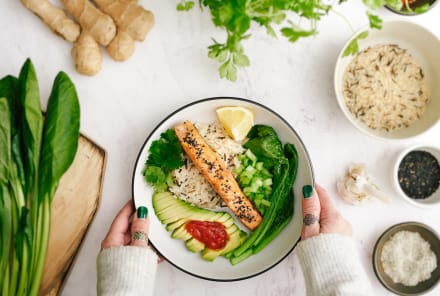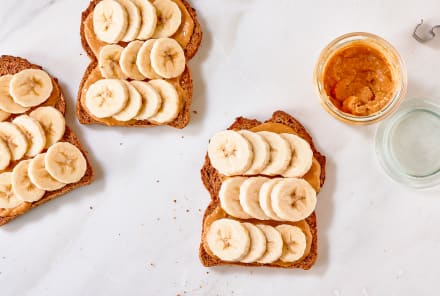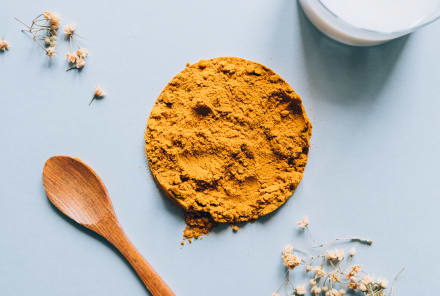Advertisement
The One Nutrient You Might Be Missing If You Struggle With Yeast Infections

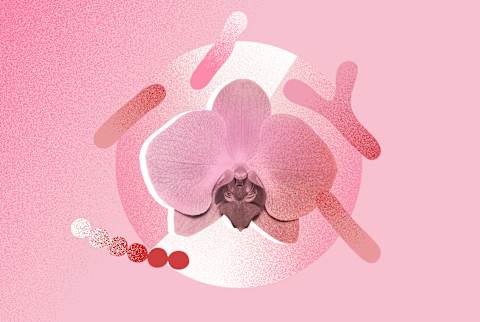
If you've had the misfortune of getting a yeast infection, we don't need to remind you how aggravating they can be. And if you're someone who experiences frequent yeast infections, you're probably looking for an effective way to keep them at bay.
The good news is, according to research published in Science Translational Medicine1, there's one critical nutrient you could be missing that might just be the solution you're looking for.
Studying the connection between yeast infections & zinc
In case you need the refresher, yeast infections happen when the yeast that naturally occurs in the body starts to grow in excess in the vagina and vulva tissue. More specifically, yeast infections2 are an overgrowth of Candida albicans, a yeastlike fungus.
So for this study, researchers wanted to better understand the molecular mechanisms behind yeast infections and candida, noting in their research that candida actually requires zinc to grow as normal. However, when zinc is limited, that's when problems can occur, they found.
Namely, candida makes a protein called Pra1 when zinc isn't present, which allows the candida to find metal in other cells. But this mechanism can often wind up triggering an infection, the study authors explain, as the Pra1 drives up inflammation and subsequently, causes symptoms like itching, burning, painful urination, etc.
But when women experiencing recurring yeast infections were given a vaginal gel that contains zinc (which is available on the market for anyone!) and used it every night for two weeks and then twice a week for up to three months, they finally got some relief.
It was a pretty small study, with only six women, but the results showed that five out of the six women saw a full reduction in their symptoms and prevention of reinfections.
What to do about it
While the study authors note that a larger sample size is necessary to support their findings, zinc could be a promising solution to those who suffer from frequent yeast infections. And the best part is, the study authors used a commercially available zinc gel that is used to treat vaginal dryness, so anyone can get their hands on it.
Plus, there are so many other reasons to ensure you're getting enough zinc. As mindbodygreen's former vice president of scientific affairs, Ashley Jordan Ferira, Ph.D., RDN, previously wrote for mindbodygreen, "Zinc is a trace mineral and essential micronutrient. When I say 'essential,' I mean that our bodies cannot synthesize this metal on our own and we must consume it. Daily."
According to Ferira, in order to prevent zinc deficiency3, women need to get at least 8 milligrams (mg) of zinc daily (or 11 mg during pregnancy and 12 mg when breastfeeding), while men require at least 11 mg of zinc each day. But that's the minimum, with Ferira noting for optimal health and targeted immune support, zinc needs are thought to be even higher4 (15 to 30 mg).
In any case, whether you want to avoid yeast infections or support your overall ability to fight any infection, zinc isn't a nutrient you want to miss.
The takeaway
Yeast infections are no joke—they're painful, irritating, and are an indication of candida overgrowth. If that sounds all too familiar, you might want to start getting more zinc in your diet, supplementing it, or finding a zinc-based gel like the women in this study, in order to find relief.
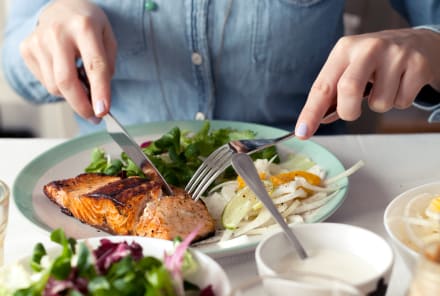
5 Subtle Signs You Might Be Low In Omega-3 Fats & What To Do About It
Molly Knudsen, M.S., RDN

This Antioxidant-Rich Fruit Is A+ For Sleep & Recovery, Research Shows
Molly Knudsen, M.S., RDN

Which Is Healthier: One Drink Daily Or A Few Drinks On The Weekend?
Molly Knudsen, M.S., RDN

5 Subtle Signs You Might Be Low In Omega-3 Fats & What To Do About It
Molly Knudsen, M.S., RDN

This Antioxidant-Rich Fruit Is A+ For Sleep & Recovery, Research Shows
Molly Knudsen, M.S., RDN

Which Is Healthier: One Drink Daily Or A Few Drinks On The Weekend?
Molly Knudsen, M.S., RDN

5 Subtle Signs You Might Be Low In Omega-3 Fats & What To Do About It
Molly Knudsen, M.S., RDN

This Antioxidant-Rich Fruit Is A+ For Sleep & Recovery, Research Shows
Molly Knudsen, M.S., RDN

Which Is Healthier: One Drink Daily Or A Few Drinks On The Weekend?
Molly Knudsen, M.S., RDN

5 Subtle Signs You Might Be Low In Omega-3 Fats & What To Do About It
Molly Knudsen, M.S., RDN

This Antioxidant-Rich Fruit Is A+ For Sleep & Recovery, Research Shows
Molly Knudsen, M.S., RDN

Which Is Healthier: One Drink Daily Or A Few Drinks On The Weekend?
Molly Knudsen, M.S., RDN
